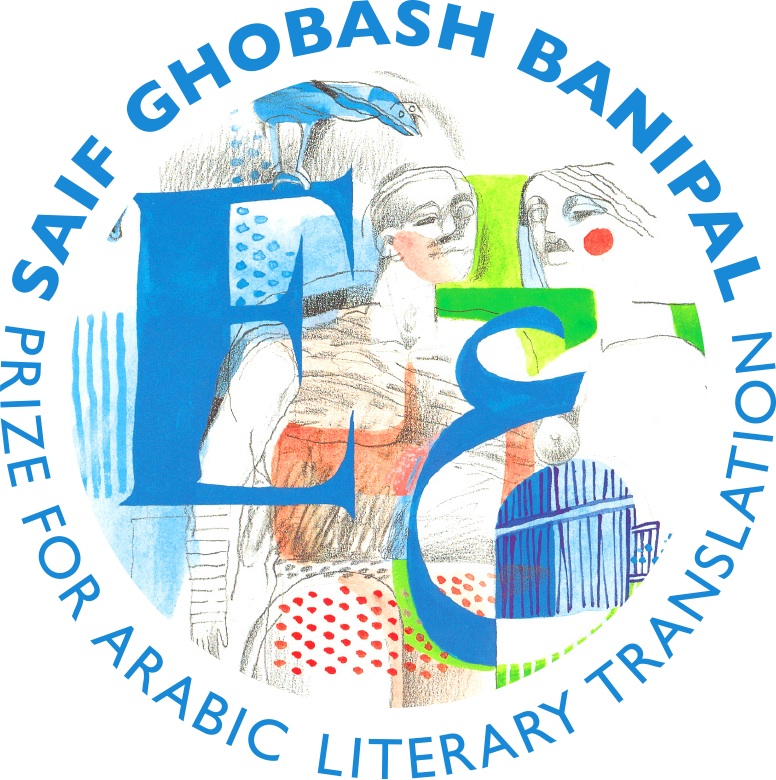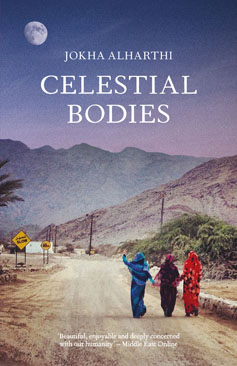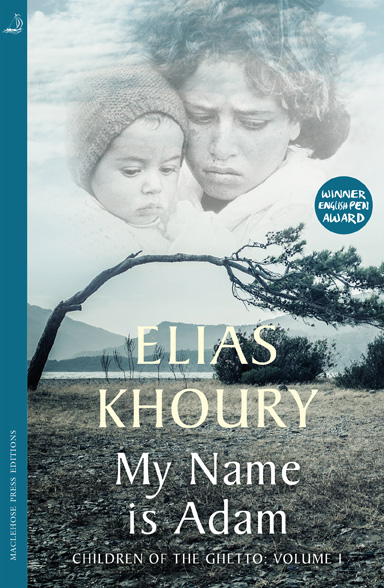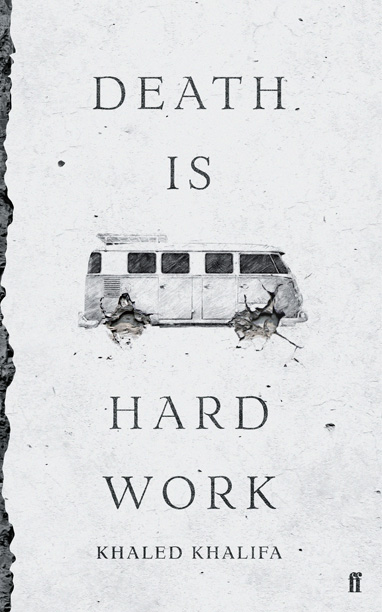Receive Our Newsletter
For news of readings, events and new titles.

The Saif Ghobash Banipal Translation Prize is thrilled to announce the shortlist of the 2019 Prize. The four shortlisted works are translated by two former winners of the prize, Humphrey Davies and Jonathan Wright, a previously shortlisted translator, Leri Price, and award-winning translator Marilyn Booth.
The judges were privileged to read this year’s 17 entries, and noticed the enriching diversity of styles, themes and genres. Although three of the shortlisted titles deal with civil unrest and conflict, each is distinguished by place, time and literary narrative. The four books deal with issues of belonging, social change and the absurdity of war and existence. From urban metropolises like Beirut, New York and Damascus to small villages, these titles capture our imaginations and open a window into the ordinary lives of its characters with extraordinary sensitivity and nuanced and vivid translations. The shortlisted works are:




Celestial Bodies by Jokha Alharthi (Oman), translated by Marilyn Booth (Sandstone Press)
My Name is Adam: Children of the Ghetto, Volume 1, by Elias Khoury (Lebanon), translated by Humphrey Davies (MacLehose Press)
Death is Hard Work by Khaled Khalifa (Syria), translated by Leri Price (Faber & Faber)
Jokes for the Gunmen by Mazen Maarouf (Palestine), translated by Jonathan Wright (Granta Books)
The judging panel comprises fiction writer and publishing editor Ghazi Gheblawi (Chair); poet, novelist and publisher Jan Fortune; university lecturer and translator Abla Oudeh; and writer, critic and former deputy director of English PEN Catherine Taylor.
 Marilyn Booth
Marilyn Boothshortlisted for her translation of Celestial Bodies by Jokha Alharthi
Published by Sandstone Press, UK, 2018, SBN: 978-1912240166, paperback, 2018, 256 pages, £8.99
The US edition is published by Catapult, 2019, ISBN: 9781948226943, paperback, 256 pages, #16.95
Jokha Alharthi’s complex and ambitious multi-generational novel builds a rare picture of social change in Oman after its modern economic transformation, through the microcosm of a small village. Marilyn Booth is to be applauded for her vivid, nuanced, and compelling translation of Celestial Bodies. She succeeds in bringing to life the complicated relationship of three sisters as they come of age and witness the cultural and social evolution of the world around them through their family’s past stories and dramas. The elegant and rich translation captures the fine details in the lives of women who are caught between expectations and aspirations in a rapidly changing world. The fluent and honed prose makes this an insightful novel that manages to approach sensitive topics like slavery and role of women in Oman through the past decades with profound artistry and poignancy.
 Humphrey Davies
Humphrey Daviesshortlisted for his translation of My Name is Adam: Children of the Ghetto, Volume 1, by Elias Khoury
Published by MacLehose Press, London, October 2018. ISBN: 9780857057501, paperback, 448 pages, £16.99
The US edition is published under the title Children of the Ghetto: My Name is Adam by Archipelago Books, USA, June 2019. ISBN: 9781939810137, paperback, 400 pages, $20.00
A middle-aged Israeli man, Adam Dannoun, living in New York discovers the truth about his origins and past that shatters all facts about his life and identity. In this epic and extraordinary novel of intertextuality and metafiction we enter a world of academic scholarship, human tragedy and the consequences of historical catastrophes that are still resonating to our present time. With intricate and engaging translation by Humphrey Davies this first volume of Children of the Ghetto covers many aspects of classical and modern Arabic culture and its prose and poetry, drama and tragedy. With its use of a ‘found notebook’ to convey a history of silence lit by bravery, ingenuity and resolve the novel takes us on a journey of self-atonement and discovery from Lydda in 1948 to modern day New York. The novel is translated with remarkable skill and attention that movingly conveys the pain and joy of existence in every astonishing sentence.
 Leri Price
Leri Priceshortlisted for her translation of Death is Hard Work by Khaled Khalifa
Published by Faber & Faber, London, 2019. ISBN: 9780571346042, paperback, 192 pages, £12.99
The US edition is published by Farrar, Straus and Giroux (a division of Macmillan), 2019. ISBN: 9780374135737, hardback, 192 pages, $25.00
Leri Price’s subtle translation of Death is Hard Work is both sharp and unobtrusive while maintaining the vividness and intense style of this compelling work. The novel is a strong depiction of the crisis in Syria, through the quest of three siblings to honour the last wishes of their deceased father to be buried in his home village, situated across war and torment. What ensues is a dangerous road journey that deftly mirrors the conflict outside their minibus that brings out the dysfunctional relationship of the family. Khalifa’s novel is a metaphorical and condensed narrative of the tragic war in Syria. Layered and absurd, it captures in pitch-perfect prose a sense of claustrophobia and unravelling that infects both family and Syria.
 Jonathan Wright
Jonathan Wright shortlisted for his translation of Jokes for the Gunmen by Mazen Maarouf (Palestine)
Published by Granta Books, London, 2019. ISBN: 978-1846276675, paperback, 176 pages, £10.99
In this evocative collection of short stories set during the Lebanese civil war in the 1980s we encounter characters that cling to life on the margins of conflict and daily strife. Mazen Maarouf’s deceptively simple, savage collection mixes the domestic and the horrific to achieve a level of absurdity that reflects the insanities of conflict through the eyes of its main young characters, who search for a meaning of the collapsing world around them. Jonathan Wright’s perfectly seamless and bold translation of Jokes for the Gunmen manages to portray the satirical nature of Maarouf’s post-modern style, which is masterful and deadly, deadpan and sardonic. The translation renders Maarouf’s language in an elegant and engaging prose which maintains the fine line between reality and the fantastical world of the characters.
GHAZI GHEBLAWI (chair of judges) was born in Tripoli, Libya, where he studied medicine, and published his first works of fiction. He is the author of two collections of short stories in Arabic and has published various literary works in English in several publications in the UK. He runs and hosts Imtidad Cultural Blog & Podcast, which focuses on literature and arts in Britain and the Arab world. He lives in the UK, where he practised as a physician for a number of years. In 2017 he was a judge of the Caine Prize for African Writing. He is currently a senior editor at Darf Publishers, an independent publishing house based in London, and is a trustee of The Banipal Trust for Arab Literature.
JAN FORTUNE grew up in Teesside and read Theology at Cambridge, later completing a doctorate in Feminist Theology. She has worked as a teacher, charity director, parish priest and educational consultant and founded Cinnamon Press, an independent literary press, in 2005. In addition to running the publishing house with her husband and son, Jan writes novels, poetry and nonfiction titles. She also runs the site, Becoming a Different Story, which provides resources and courses for writers. Jan has led many creative writing courses in the UK, Spain and France and has mentored writers who have gone on to publication. Jan loves books that are engaged, raise questions, take risks with form, voice or subject or that push the boundaries of mainstream writing. She lives in a tiny village in North Wales.
ABLA OUDEH is a lecturer in Arabic studies at the Institute of Arab and Islamic Studies, University of Exeter, teaching Arabic language and translation, and organising the Institute’s annual Alexandria Poetry Recitation Prize. She has previously taught translation studies at the University of Edinburgh, and has an MA in Translation and Linguistics (University of Bath, 1992). She has several published translations from English into Arabic including: Taste of Thyme, Culinary Cultures of the Middle East by R. Tapper and S. Zubaida, 2009 (awarded best translation 2010 by the University of Philadelphia, Amman, Jordan); Leila Khaled: Icon of Palestinian Liberation by Sarah Irving, 2013; Malignant Sadness: The Anatomy of Depression by Lewis Wolpert, 2014; and Stranger Magic, Charmed States & the Arabian Nights by Marina Warner, 2016.
CATHERINE TAYLOR was born in Waikato, New Zealand, and grew up in Sheffield, South Yorkshire. She studied English and Philosophy at Cardiff University, and Publishing at the London College of Printing (now London College of Communication). She has been an editorial researcher for the British Library, and was books category manager for Amazon.co.uk before moving to The Folio Society, becoming its managing editor, and later publisher, helping to establish the Folio Prize (now the Rathbones-Folio Prize.) From 2013-2016 she was deputy director of literature and freedom of expression charity English PEN. As a freelance critic, she contributes regularly to the Guardian Review (for which she wrote a monthly debut fiction column 2007-2012), New Statesman, FT Life & Arts, Times Literary Supplement, The Economist, and Irish Times. She has been a judge for a number of literary awards, including the Jewish Quarterly-Wingate Prize, European Union Prize for Literature, the Harvill Secker Young Translator’s Prize, the Guardian First Book Award, the British Book Awards, and most recently the Republic of Consciousness Prize for Small Presses.
About the Saif Ghobash Banipal Prize for Arabic Literary Translation
The prize is an annual award of £3,000, made to the translator(s) of a published translation in English of a full-length imaginative and creative Arabic work of literary merit published after, or during, the year 1967 and first published in English translation in the year prior to the award. The Prize aims to raise the profile of contemporary Arabic literature as well as honouring the important work of individual translators in bringing the work of established and emerging Arab writers to the attention of the wider world. It was the first prize in the world for published Arabic literary translation into English and was established by Banipal, the magazine of modern Arab literature in English translation, and the Banipal Trust for Arab Literature. The inaugural prize was awarded on 9 October 2006. The prize is administered by the Society of Authors in the United Kingdom, alongside the other prizes for literary translation from languages that include Dutch, French, German, Greek, Hebrew, Italian, Portuguese, Spanish and Swedish. The prizes are awarded annually at a ceremony hosted by the Society. The Saif Ghobash Banipal Prize is wholly sponsored by Omar Saif Ghobash and his family in memory of his father, the late Saif Ghobash, a man passionate about Arabic literature and other literatures of the world.
In 2015, to mark the tenth year of awarding a prize for contemporary Arabic literature translated into English, the sponsor Omar Ghobash and his family generously extended their sponsorship to the establishment of an annual lecture on literary translation. The four lectures to date have been held in London at the British Library’s Knowledge Centre. The inaugural one on 14 October 2016 was given by author, translator and essayist Anton Shammas on “Blind Spots: A Millennium of Arabic in translation – from Ibn Al-Haytham to William Faulkner via Don Quixote”, the second, by the historian and novelist Robert Irwin on 7 November 2017 was on “The Season of Migration to the North by Tayeb Salib: ‘The most important Arabic novel of the 20th Century’”, the third on 9 November 2018 by Syrian poet and philosopher Adonis was entitled “Translation, a Second Act of Creation”and on 7 November this year the Lebanese novelist and playwright Hanan al-Shaykh spoke on “My travels through Cultures, Languages and Writing – From Abu Nuwas to Bint Al-Shaykh”. With the Lecture, the Banipal Trust looks forward to increasing support for reading literature from the Arab world in English translation, and to working with publishers, translators and booksellers to encourage and promote both the wider translation and wider availability of contemporary works of literature by Arab authors.
The deadline for Prize entries and publication of works each year is 31 March. For further history of the prize, more information about entries, judges, rules, and any other details, please go to: http://www.banipaltrust.org.uk/prize/ and to these links: http://www.banipaltrust.org.uk/prize/award2019.cfm http://www.banipaltrust.org.uk/judges/ http://www.banipaltrust.org.uk/rules/ https://www.facebook.com/SaifGhobashBanipalPrize/
The winner will be announced on 8 January 2020, on the websites and by email, and in the TLS of 10 January. The Award Ceremony, hosted by the Society of Authors who administer the translation prizes in the UK, is on Wednesday 12 February 2020, with the Banipal Winner Celebration on the following day, 13 February. As yet there is no information about venues, only the dates are confirmed.
As yet, there is no award made to shortlisted translators, neither is there funding to bring them to the Award Ceremony or to our own Celebration. Instead, we make as many posts etc. as we can, and encourage others to do so, too, on the internet and social media to help spread the world about the shortlisted works. Please do share and like on social media – on the Prize Facebook Saif Ghobash Banipal Translation Prize Facebook and on Banipal Magazine Facebook and Banipal Magazine Twitter and @BanipalMagazine.